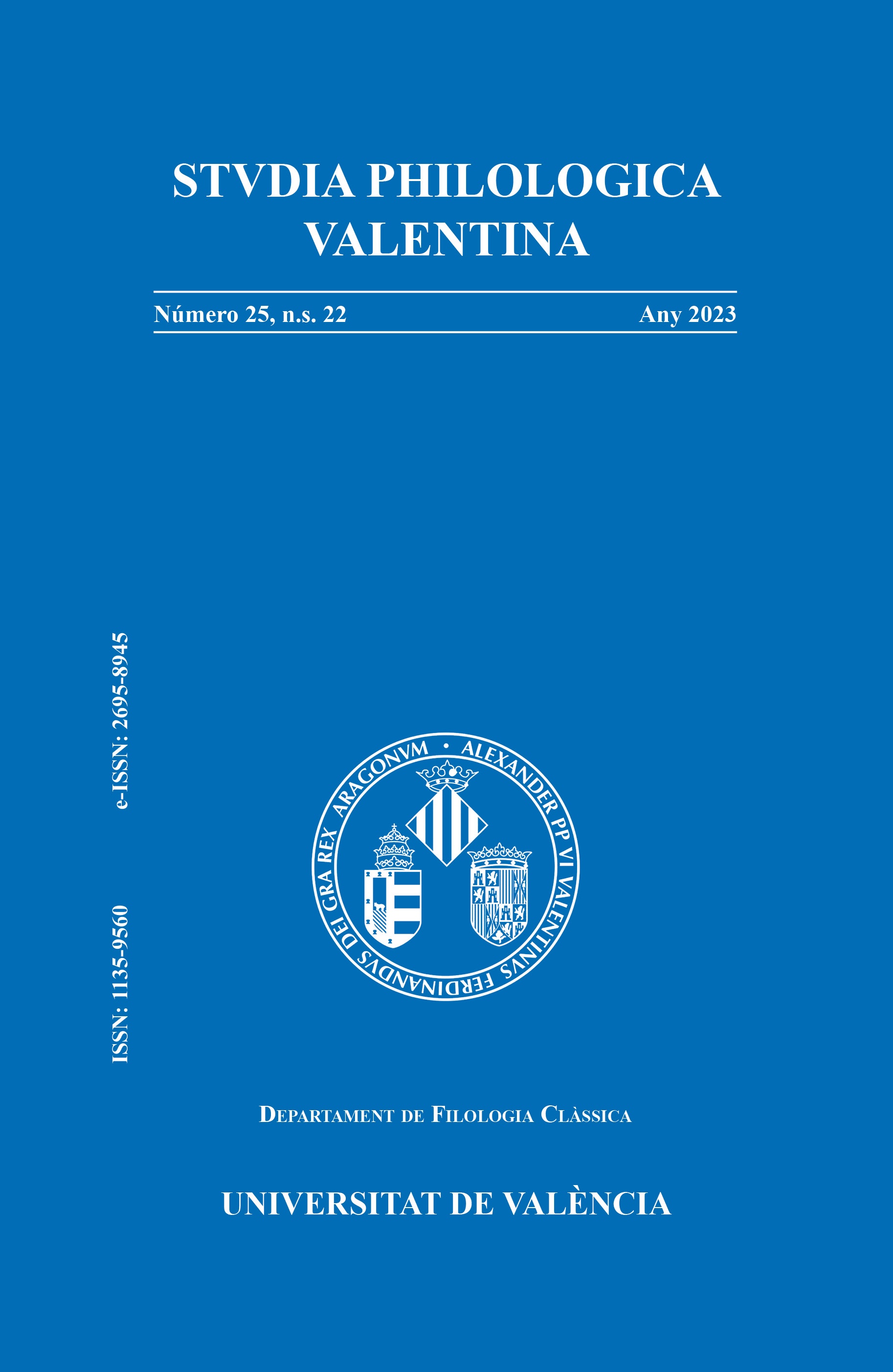o thrinos yia ton Diyeni Akriti kai tous oikeious tous sto omonimo bizantino epos. Mia proti sinkritiki prosengisi me ton thrino yia ton Ektora stin Iliada
DOI:
https://doi.org/10.7203/SPhV.25.26339Paraules clau:
Digenes Akrites, lament, byzantine epic poetry, Iliad, Zumthor’s taxonomy, comparative approach Resum
Resum
The motif of epic lamentation for familiar persons who have passed away has been a popular theme in world literature since the Epic of Gilgamesh and Homer’s Iliad. In this contribution, we focus on the Byzantine epic poem of Digenes Akrites, written by an unknown author of the early 12th century, which recounts the exploits of the eponymous hero on the frontier between the Byzantines and the Arabs. Six manuscripts in Greek survive today (apart from some adaptations in Old Russian), which are variants of the lost original version—all date from the mid-13th or 14th century to the 17th century. Our interest focuses on the four laments for Akritis’ father and mother, himself and his wife, as presented in the six manuscripts. The approach will be comparative between the six texts, the laments for Digenes and similar laments for Hector in the Iliad. Finally, it is essential to draw on Zumthor’s schema of epic lament in French epic medieval texts, and the form in which it is found in the epic laments we are studying.
 Descàrregues
Descàrregues
Descàrregues
Publicades
Com citar
-
Resum190
-
PDF (Español)92
Número
Secció
Llicència
![]()
Aquesta obra està sota una llicència Creative Commons Reconocimiento-NoComercial-CompartirIgual 4.0 Internacional.



